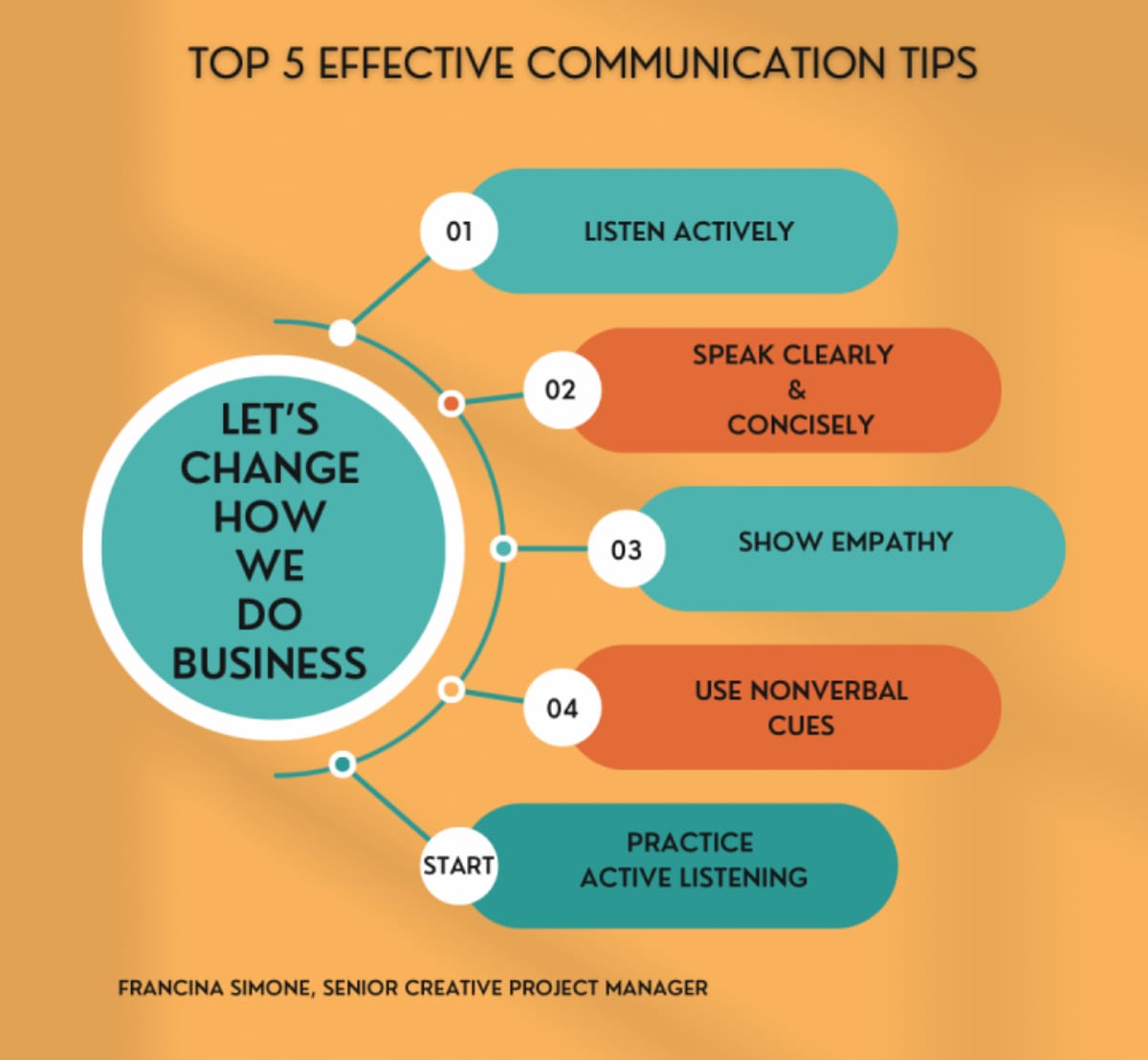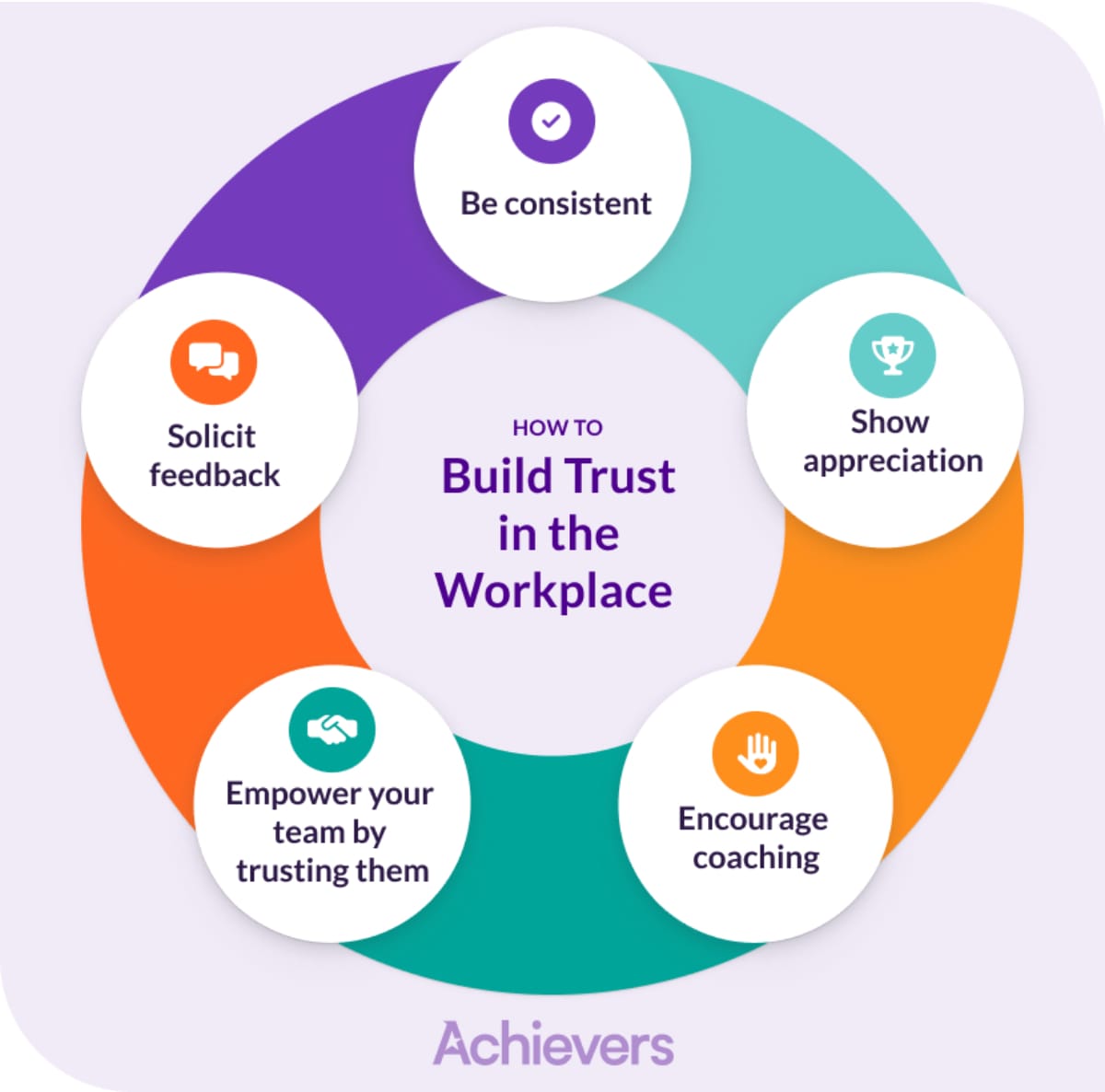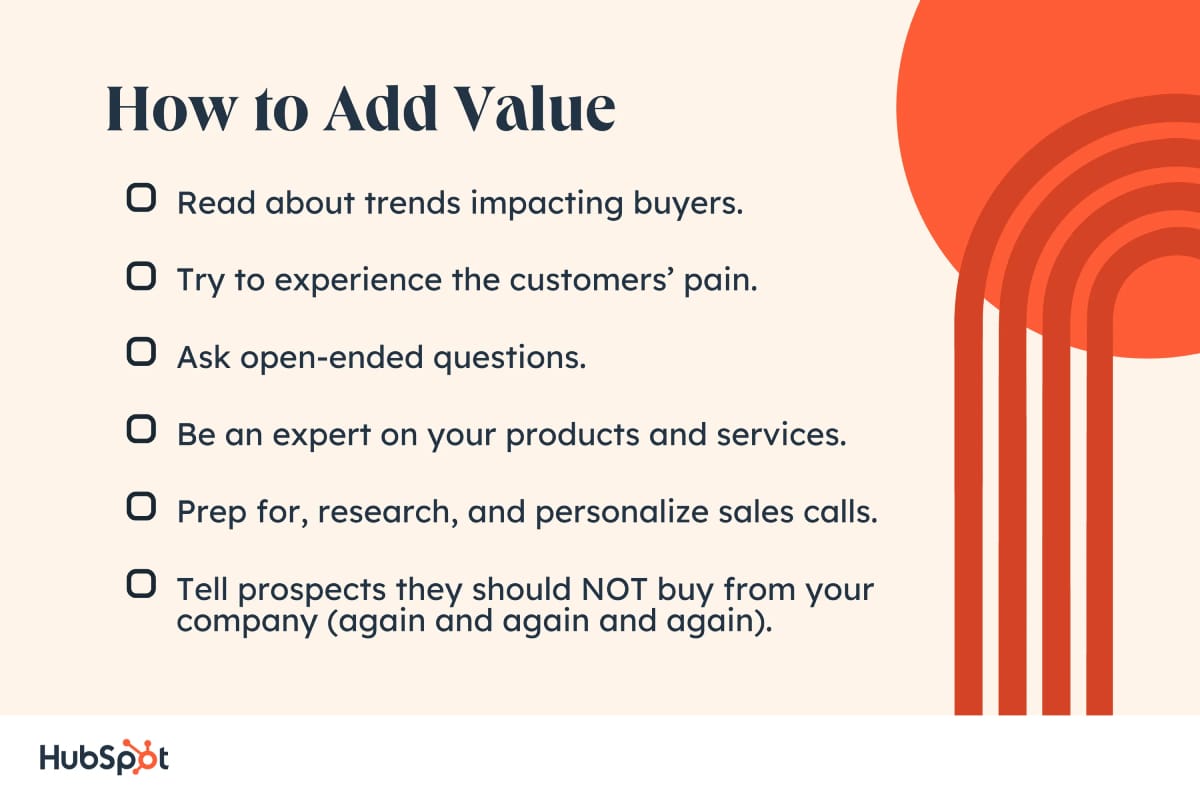4 Ways to Build Deep Business Relationships

Building deep business relationships is crucial for any professional aiming for long-term success. Having strong, reliable connections can be the difference between thriving and merely surviving. These relationships not only provide a network of support and resources but also open doors to new opportunities, partnerships, and growth avenues.
But what does it take to build these deep, meaningful connections? It's not about a quick exchange of business cards at networking events or a flurry of sales pitches. Instead, it involves a series of deliberate and sincere efforts, focusing on mutual benefit and understanding.
Let's explore four fundamental ways to cultivate and nurture deep business relationships: through effective communication, mutual respect and trust, providing value beyond transactions, and consistent engagement and support. Each of these strategies plays a pivotal role in developing a strong foundation for lasting business connections that go beyond superficial interactions.
Now, let's dive into each of these methods, starting with the cornerstone of all successful relationships: effective communication.
Way 1: Effective Communication

Effective communication stands as the bedrock upon which all other elements rest. It's not merely about exchanging information; it's about ensuring that the message is understood, appreciated, and reciprocated. This section delves into the nuances of effective communication, offering insights and practical tips for enhancing your communication skills in a business context.
Understanding the Role of Clear and Open Communication
Clear and open communication fosters an environment of transparency and trust. It involves articulating your thoughts and intentions in a straightforward manner while also being receptive to the perspectives and feedback of others. This two-way street ensures that all parties are on the same page, reducing the likelihood of misunderstandings and conflicts.
For business relationships to deepen, it's crucial that communication goes beyond the superficial. It should encompass not just the what and the how but also the why behind actions and decisions. Sharing the rationale behind your business moves invites your partners into your thought process, making them feel valued and respected.
Tips for Improving Communication Skills
- Active Listening: This is more than just hearing the words being spoken. It's about fully concentrating on the message, understanding it, responding appropriately, and then remembering what was said. Active listening involves nonverbal cues, such as nodding or maintaining eye contact, to show engagement and encourage openness.
- Clarity in Messaging: Whether it's a pitch, a proposal, or just a regular update, ensure your message is clear and concise. Avoid jargon or complex language that might confuse the receiver. The goal is to convey your message effectively without room for misinterpretation.
- Empathy: Understanding and acknowledging the emotions and perspectives of others is crucial. Empathetic communication helps in building a deeper connection, as it shows that you value not just the business aspect but also the human element of the relationship.
- Feedback: Encourage and provide constructive feedback. This not only aids in personal and professional growth but also strengthens the relationship by demonstrating a commitment to mutual improvement.

Real-world Examples of Effective Communication in Business Relationships
Consider a scenario where a long-term supplier faces unexpected delays. Instead of hiding the issue or providing vague updates, the supplier communicates openly about the problem, explaining the cause, the steps being taken to address it, and realistic timelines for resolution. This approach not only maintains trust but also allows the client to adjust their plans accordingly, showcasing the importance of honesty and transparency in maintaining strong business relationships.
Another example is a startup founder who regularly updates investors, not just during formal presentations but through informal catch-ups. These updates include both successes and setbacks, providing a comprehensive view of the company's progress. This continuous, open line of communication builds trust, keeps investors engaged, and fosters a sense of partnership.
Effective communication is an indispensable tool in the arsenal of anyone looking to build and maintain deep business relationships. It's about much more than just talking; it's about connecting on a level that transcends mere transactions. By practicing active listening, ensuring clarity in messaging, exhibiting empathy, and embracing feedback, you can lay a strong foundation for relationships that not only survive but thrive in the challenging world of business.
Through these strategies, you can transform ordinary business interactions into meaningful partnerships, characterized by mutual respect, understanding, and shared growth. Remember, at the heart of every successful business relationship is a stream of clear, open, and honest communication.
Way 2: Mutual Respect and Trust

The threads of mutual respect and trust are interwoven, creating a durable and resilient bond. This section explores the significance of these elements, strategies for fostering them, and their profound impact on long-term business partnerships.
The Foundation of Respect in Business Interactions
Respect in business is about recognizing and valuing the contributions, boundaries, and aspirations of everyone you interact with. It's demonstrated through actions and words that show you consider your business partners' perspectives and needs. Respect is the soil in which trust grows; without it, even the most promising business relationships can wither.
One of the key aspects of respect is professionalism—treating others with courtesy, regardless of the situation. It also involves acknowledging the expertise and experience of your partners, seeking their input, and considering their suggestions seriously. This approach not only enriches the relationship but also fosters a collaborative environment where innovative ideas can flourish.
Strategies for Building Trust Over Time
Trust is not a commodity that can be acquired instantly; it's earned through consistent, reliable actions over time. Here are some strategies to help build trust in business relationships:
- Honesty: Always be truthful in your dealings. This includes being upfront about challenges or uncertainties. Honesty builds credibility, a cornerstone of trust.
- Reliability: Meet your commitments and deliver on your promises. Consistency in your actions reassures your partners that they can depend on you.
- Transparency: Share relevant information freely. Keeping your partners in the loop, especially regarding decisions that affect them, enhances trust.
- Integrity: Stand by your principles, even when it's difficult. Showing that you're guided by a strong moral compass can significantly strengthen trust.

The Impact of Respect and Trust on Long-Term Business Relationships
The cumulative effect of respect and trust in business cannot be overstated. They transform transactions into partnerships and acquaintances into allies. Here are some ways in which these elements impact business relationships:
- Enhanced Collaboration: When there's mutual respect and trust, partners are more likely to share resources, ideas, and opportunities, leading to innovative solutions and mutual growth.
- Increased Flexibility: Trusting relationships can withstand the pressures of negotiation and adapt to changing circumstances, as both parties are committed to finding solutions that benefit everyone involved.
- Longevity: Relationships grounded in respect and trust are more likely to endure challenges. They provide a stable foundation for long-term collaboration and support.
Real-world Examples of Mutual Respect and Trust in Action
Consider a partnership between two companies where one faces an unexpected financial challenge. Because of the trust and respect established over years of working together, the other company offers flexible payment terms, allowing their partner to navigate the crisis without jeopardizing their relationship. This act of understanding and support not only cements their bond but also ensures mutual loyalty and commitment for years to come.
Another example is a business leader who regularly involves employees in decision-making processes, showing respect for their opinions and expertise. This inclusive approach builds a culture of trust within the organization, leading to higher engagement, innovation, and job satisfaction.
Mutual respect and trust are the lifeblood of deep business relationships. They create a nurturing environment where partnerships can thrive, characterized by collaboration, flexibility, and longevity. By prioritizing honesty, reliability, transparency, and integrity in your interactions, you can build a network of strong, trusting relationships that will support your business's growth and success.
Way 3: Providing Value Beyond Transactions

To cultivate deep business relationships, it's essential to transcend the traditional transactional mindset, focusing instead on creating additional value for your partners. This section discusses the concept of adding value beyond mere transactions, offering practical ideas for implementation and showcasing the benefits of this approach through real-life examples.
The Concept of Adding Value to Business Relationships
Adding value means contributing to your partners' success in ways that go beyond the expected deliverables. It's about understanding their goals, challenges, and needs, and proactively offering solutions, insights, or resources that can help them achieve their objectives. This approach not only strengthens the relationship but also positions you as a trusted advisor rather than just a vendor or client.
Ideas for Offering More Than What's Expected
- Sharing Knowledge and Expertise: Offer your insights on industry trends, challenges, and opportunities. This can help your partners navigate their business landscape more effectively.
- Networking Introductions: Connect your business partners with others in your network who can provide additional value, support, or collaboration opportunities.
- Customized Solutions: Go the extra mile by tailoring your products or services to better meet your partners' specific needs, demonstrating your commitment to their success.
- Support Beyond the Contract: Offer support or advice on matters not strictly covered by your agreements. This shows that you're invested in their overall well-being, not just the business at hand.

Case Study 1: A Marketing Firm's Extra Mile
A marketing firm working with a small startup noticed that the client was struggling with its online customer service. Even though it wasn't part of their contracted services, the firm provided the startup with recommendations and tools for improving their customer engagement online. This not only helped the startup enhance its customer satisfaction but also deepened the trust and reliance they had on the marketing firm, leading to a long-term partnership and referrals to other clients.
Case Study 2: The Power of Networking Introductions
An established software developer regularly hosts industry meetups that bring together clients, vendors, and other stakeholders. By facilitating these connections, the developer creates a collaborative ecosystem that benefits all parties involved. This approach has led to new partnerships, co-development opportunities, and a strong, supportive community that values the developer's contributions beyond their software solutions.
Providing value beyond transactions is a powerful strategy for deepening business relationships. It's about showing genuine interest and commitment to your partners' success. By sharing knowledge, making valuable introductions, offering customized solutions, and supporting your partners beyond contractual obligations, you can transform ordinary business interactions into robust, lasting partnerships.
This approach not only fosters loyalty and trust but also sets you apart as a leader in your industry, one who is known for building meaningful connections that transcend the usual scope of business dealings.
Way 4: Consistent Engagement and Support

The final piece in building deep business relationships is consistent engagement and support. This approach ensures that the relationship is nurtured continually, not just when there's a deal on the table or a specific need arises. This section outlines the significance of staying engaged with your partners and ways to offer support that strengthens your relationship over time.
Keeping in Touch and Showing Genuine Interest
Regular communication is key to maintaining any relationship, and business relationships are no exception. Consistent engagement means checking in with your partners regularly, not only to discuss ongoing projects or business opportunities but also to show genuine interest in their well-being and success. This can be through informal catch-ups, sharing relevant articles or resources, or simply sending a message to acknowledge important milestones or achievements.
Supporting Your Business Partners in Times of Need
Support goes beyond mere words; it's demonstrated through actions, especially during challenging times. Whether it's offering flexible terms during a financial crunch, providing additional resources to help tackle a sudden problem, or standing by your partners when they face external challenges, support solidifies trust and loyalty, reinforcing the strength of your relationship.
The Role of Consistent Engagement in Strengthening Relationships
- Building a Community: Regular engagement helps in creating a sense of community among business partners, where everyone feels valued and supported. This community can become a powerful resource for innovation, support, and growth.
- Anticipating Needs: By staying engaged, you can better understand your partners' evolving needs and challenges, allowing you to offer timely solutions and support, further demonstrating your commitment to their success.
- Long-term Loyalty: Consistent support and engagement foster long-term loyalty, making it more likely that your partners will turn to you first when new opportunities or challenges arise.
Case Study 1: A Tech Company's Approach to Customer Support
A tech company, known for its software solutions, sets itself apart by offering unparalleled customer support. Beyond solving technical issues, the company regularly reaches out to its clients with updates, tips, and training sessions to help them get the most out of their products. This proactive approach has led to high customer retention rates and referrals, showcasing the value of consistent engagement.
Case Study 2: Supporting Through Crisis
During the recent global crisis, a manufacturing company faced significant supply chain disruptions. One of its key suppliers went above and beyond, not only by finding alternative solutions to meet immediate needs but also by working closely with the company to redesign their supply chain for greater resilience. This level of support and engagement during a critical time deepened the trust and reliance between the two businesses, transforming a vendor-client relationship into a strategic partnership.
Consistent engagement and support are vital in building and maintaining deep business relationships. By showing genuine interest in your partners' success, supporting them through challenges, and maintaining regular communication, you can create strong, enduring connections. These relationships, based on mutual trust, respect, and shared goals, are the foundation upon which successful businesses are built.
Incorporating effective communication, mutual respect and trust, providing value beyond transactions, and consistent engagement and support into your strategy can transform your business relationships from superficial connections into deep, meaningful partnerships. These relationships not only withstand the test of time but also become key drivers of growth and success.
Final Thoughts
Building deep business relationships is a strategic imperative in today's dynamic business landscape. Reflecting on the "4 Ways to Build Deep Business Relationships," we recognize the critical importance of effective communication, mutual respect and trust, adding value beyond transactions, and consistent engagement and support. These pillars are not just strategies but foundational elements that forge lasting and meaningful connections.
Effective communication aligns all parties, ensuring clarity and mutual understanding. Mutual respect and trust create a fertile ground for collaboration, while providing value beyond transactions demonstrates a deep commitment to partners' success. Consistent engagement and support solidify these bonds, making them resilient to challenges.
The essence of cultivating deep business relationships lies in a genuine commitment to mutual growth. It's about looking beyond immediate gains to develop a supportive network of partnerships that are both fulfilling and sustainable. Such relationships not only underpin business success but also foster a competitive advantage.
As we wrap up, remember that the journey to building deep business relationships is one of continuous effort and genuine interest in the well-being of your partners. By embracing these principles, you set the stage for a future rich in collaboration, opportunities, and shared achievements.
Key Takeaways
| Strategy | Key Takeaways |
|---|---|
| 1. Effective Communication | - Clear and open dialogue fosters understanding and trust. - Active listening and empathy are crucial. - Clarity and feedback enhance mutual comprehension. |
| 2. Mutual Respect and Trust | - Professionalism and acknowledging expertise build respect. - Honesty, reliability, and integrity are foundational for trust. - Trust is earned through consistent actions over time. |
| 3. Value Beyond Transactions | - Contributing to partners' success strengthens bonds. - Sharing knowledge and making introductions can provide significant value. - Tailored solutions show commitment. |
| 4. Consistent Engagement and Support | - Regular check-ins and genuine interest in partners' well-being nurture relationships. - Support during challenges solidifies trust. - Building a community around your business fosters long-term loyalty. |





